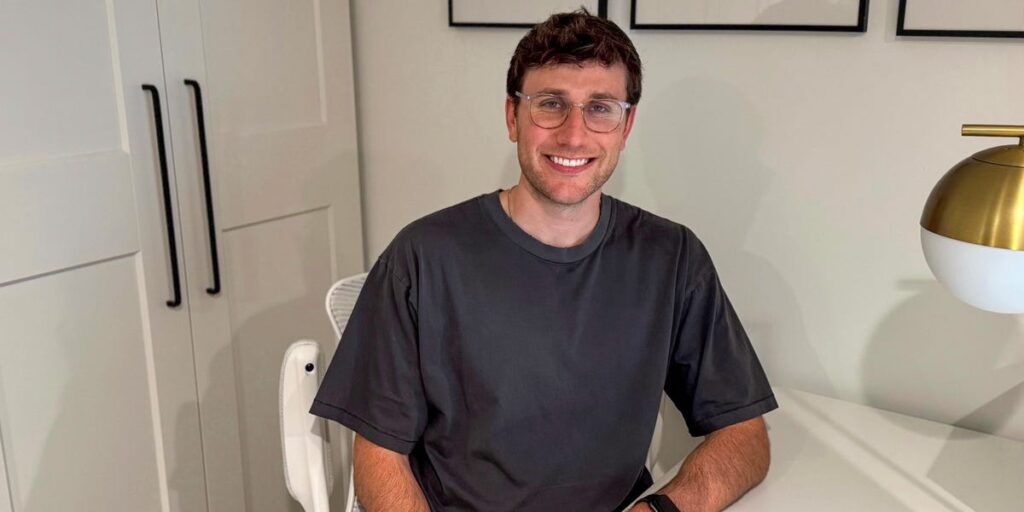This as-told-to essay is based on a conversation with Evan King, 30, a startup cofounder in Los Angeles. It’s been edited for length and clarity.
I got hired at Meta in 2017 as a software engineer on the integrity team. I loved my job and had no intentions of ever leaving, but I quit in 2022
When a product I made for fun with a Meta coworker unexpectedly gained traction, I left behind my six-figure compensation to go all in on our idea. It was a huge risk and a deeply humbling experience.
Startup life was much harder than I expected it to be. After we sold our first product in February 2023, we tossed around dozens of other ideas before finding new success. Launching my first startup was deeply humbling, but it was an experience I wouldn’t trade for anything because I’ve learned how to move on to better ideas sooner and so much more.
The stress of responsibility was so much higher than at Meta
When I left Meta, I realized I had only developed precision on a narrow subset of tasks and that my breadth of knowledge was basically nonexistent. Growing the startup was much harder than I expected, and I got pretty down on myself.
Every problem ultimately landed on my shoulders, and that weight took some getting used to. I remember bringing my laptop to a friend’s birthday party, which is something I always did in case of emergency. I later found myself sprinting home on a Saturday to fix an issue when our primary database went down.
Our product became fairly well known in the Web3 space, but we weren’t seeing the financial payoff, so we sold it in February 2023. It wasn’t the life-changing exit that we were after, but it did give us cash to fund our future ideas.
After selling our first startup, we were completely directionless
We went back to the drawing board and started using a system for developing new startup ideas. We’d spend one day developing a new idea and decide if we had enough information and conviction to spend two days on it. Then it would grow from there.
We used this process through dozens of ideas, and most of them were quick nos. A few made it past a couple of months, and we even built some pretty impressive technology that we sold.
After several months of trial and error, we took a step back to reevaluate. We were innovating in spaces where we didn’t have any expertise, like construction and trucking. We decided it was time to dive into something we know well — Big Tech interview prep.
Three misconceptions kept us from moving on to better ideas sooner
Our current startup is a hub for automated AI mock interviews and Big Tech interview preparation resources. We launched it technically in May 2023, and it’s been growing since then.
After coming up with dozens of failed ideas, I realized there were three lies I kept telling myself that kept us from moving on to better ideas sooner: “We just need better marketing,” “The product just needs more time to take off,” and “A little success means we should keep developing.”
I used to feel like we had good products, we just needed better marketing. But when you have a good product, even in its simplest form, people will want to use it. I’ve also learned the importance of counterbalancing my excitement about a product with realism about its success.
I miss parts of Meta, but wouldn’t go back anytime soon
I used to come home from a day of working alongside friends and interacting with different people at Meta and just be able to sit on my couch and relax, feeling intellectually and socially stimulated. Now, I finish a day of work from home and I feel like I need to see a friend or do something else to feel satisfied.
I’d consider going back to Big Tech, but not anytime soon.
If you left Big Tech and would like to share your story, please email the editor, Manseen Logan, at mlogan@businessinsider.com.

